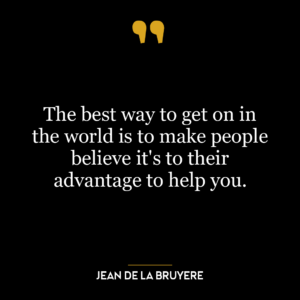This quote highlights the inherent right of every individual to work, to be able to contribute to society, and to have a sense of purpose. It implies that being able to work is not just about earning a living, but also about dignity, self-respect, and personal fulfillment. Work, in this context, is not limited to paid employment but extends to any activity that involves effort and exertion, such as housework, volunteering, or creative pursuits.
The idea that work is a basic human right underscores the importance of equal opportunity. Everyone, regardless of their race, gender, age, or disability, should have the same chance to work and contribute their skills and talents. This principle is central to the concept of social justice and is enshrined in many human rights charters and labor laws worldwide.
Applying this idea to today’s world, it is critical to address issues such as unemployment, underemployment, and workplace discrimination. It underscores the need for policies that promote job creation, fair wages, and equal opportunities for all. It also highlights the importance of education and training in equipping individuals with the skills needed to secure work and contribute effectively to society.
In terms of personal development, the right to work is closely tied to self-actualization, which is the process of realizing and fulfilling one’s potential. Work provides a platform for individuals to apply their skills, challenge themselves, and achieve their goals. It contributes to a sense of purpose and identity, which are key components of psychological well-being. Therefore, being denied the opportunity to work can lead to feelings of frustration, low self-esteem, and even depression.
In conclusion, this quote emphasizes that work is a fundamental human right that plays a vital role in individual fulfillment and societal progress. It calls for a world where everyone has the opportunity to work and contribute their unique skills and talents.










